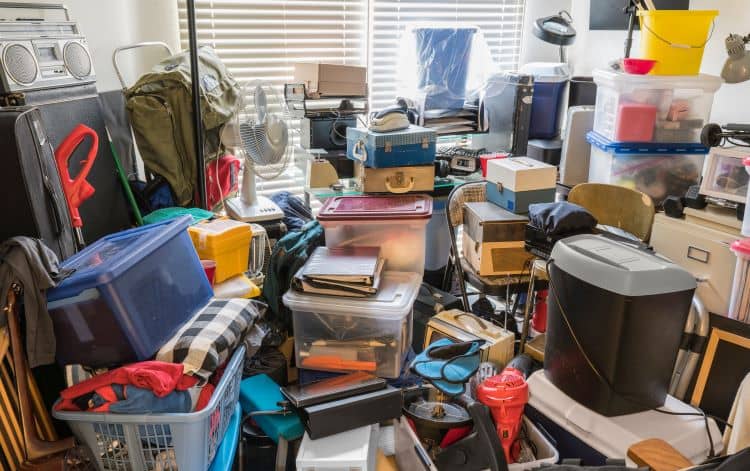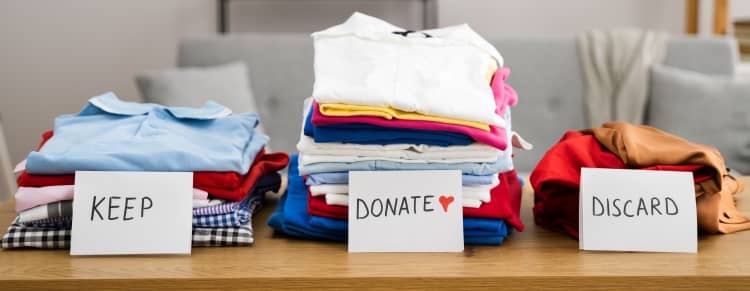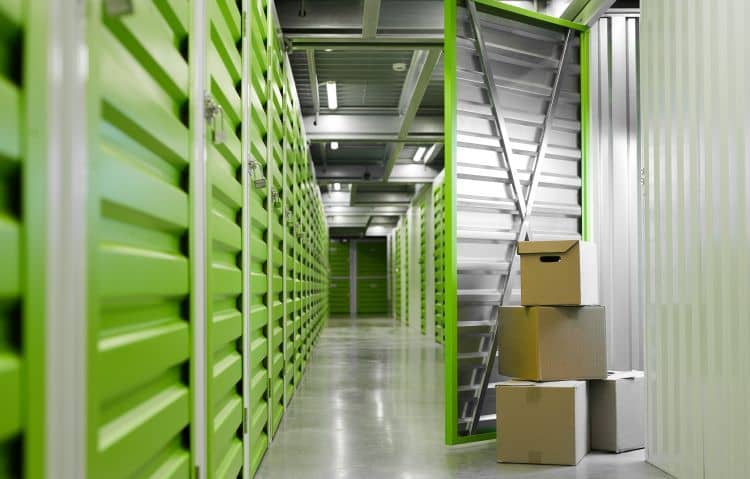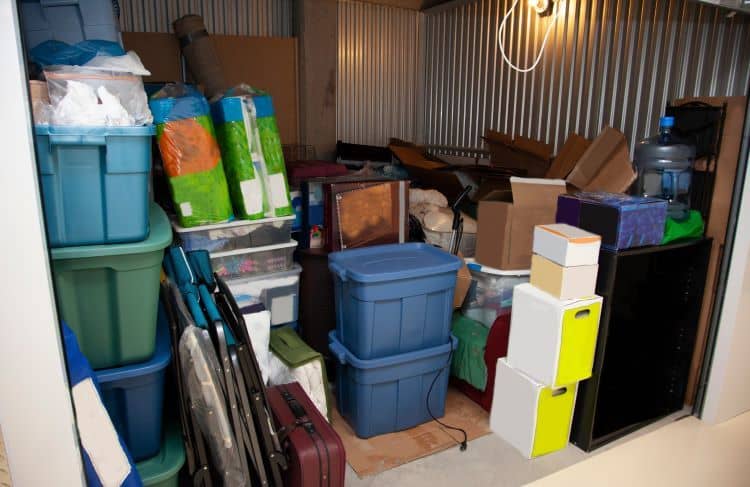Travelling is fun but can also be exhausting, especially in preparation for the trip. Lots of things to do and boxes to tick, but here’s one question that always seems to pop up: exactly what are you going to do with all your stuff?
If you’ll be on an extended overseas holiday, it’s surely a problem you will have to face. Don’t worry; we got your back. We have compiled this guide that will make planning and preparing less stressful. From packing your things to dealing with belongings you no longer need to store important stuff, we have all the answers and alternatives before your big travel adventure comes.
How to Pack Up Your House Smoothly
Knowing where to start is one of the hardest things to do when packing your stuff. You’re probably like most people with many items to deal with, so let us begin with some fundamental tips:
1. Acknowledge the Immensity of the Task at Hand
Sorting and packing your belongings is often daunting and overwhelming. Never underestimate the job; rather, take some time to plan everything you need to do. The trick here is to balance your day-to-day activities and pack up until it’s time for your departure. You have plenty of decisions to make, from choosing which items to put in a box, to storing away those you need to get rid of.
There are a few things to consider regarding which belongings to keep or discard:
- Travel Duration: If you plan to travel for a year and return after, it may make sense to simply put most of your possessions into storage. Meanwhile, if you have no plans to come back or stop travelling just yet, it may be better to let everything go and start new.
- Item Value: What is the replacement value of your belongings? Compare it to the cost of renting a storage facility. Long-term storage may be cost-effective if you only plan to be away for a couple of years at the maximum. In many cases, it may be more expensive for multiple years.
- Freedom vs Security: Does keeping your items provide a sense of security? Or, will discarding your possessions give you a sense of freedom?
Determining the points above will help you decide what’s best for your circumstance. So, ensure you have the answers before proceeding to the next step.

2. Start Packing Six Months before Travelling
You have no excuse for delaying packing (unless, of course, we’re talking about an impromptu adventure or something similar). It doesn’t have to be drastic. You can start with just a cupboard and go section by section. It doesn’t matter where you begin; what matters is that you do it right away.
Packing is certainly time-consuming, but leaving the job until a week or two before you leave will only cause stress. So, as much as possible, try to begin packing six months prior. A six-month (or more, if possible) preparation will give you a good head start to take care of things you should get rid of and those that should be stored away. It’s a good time to minimise your possessions, from the number of clothes you have piled up over the years to the old DVDs and kitchen items that no longer have any use.
During the first month, you should already have a few boxes with the things that you will keep. Some examples are photo albums and keepsake collections, which are worth storing but have no use in your daily life.
In the second month, you’ll be reducing more of your possessions. This time, the objective is to pack up and remove the majority of your items. You’ll have to cope with the bare necessities (such as those listed below) until you’re ready to go on your journey:
- Towels
- Linen set
- One cutlery set, plate, and bowl
- Necessary furniture pieces and furnishings
Remove baking items and any décor on display. You may have to leave sofas, beds, or dining sets, particularly those that you will sell or donate. Before the fourth month, you should already see empty shelves, drawers, cupboards, and walls.
3. Items Not Worth Storing and What to Do with Them Instead
You should already have boxes taped up one to two months before your trip. Some items may already be ready to go or have been removed from the house at this point. Unfortunately, this activity is probably the most frustrating, especially if you end up needing to re-box or re-sort after packing certain items for storage.
Here are a few tips to avoid such an instance:
- Label the boxes, and don’t forget to include what’s in each box.
- Tape all the boxes to prevent the desire to open them up again.
- If you have items to be sold, have them out of view. Seeing them regularly may change your mind.
- If you plan to donate some stuff, do it right away as soon as you have the opportunity.
So, let’s delve deeper into determining which ones to keep and which to let go of. Let us start with the things that you may want to keep:
- Furniture that you want to stay in good condition
- Valuables like jewellery and other sentimental items, such as heirloom pieces and your children’s favourite toys
- Books, notebooks, journals, and other stuff with important information
- Clothing that may be out of season for the time being
We have a concise list above. But that’s because you should decide on this part yourself. If you still have trouble making this decision, try answering the questions below:
- Do I frequently use the items I intend to store?
- Are those items really necessary?
- Will keeping the items make my life easier, more comfortable, or better?
- Is it expensive or rare? Is it a good quality item?
- Will I still use the items when I’m back from my holiday?

Now that you’ve decided which ones to keep and store, it’s time to focus on things to get rid of and how to do it. You have about three options here:
- Sell the unneeded but valuable items. Anything you do not need or will no longer use can be sold – as long as they are still worth something. Some things are tough to let go of. If you are not firm on selling a particular item, it may be worth storing rather than regretting it down the road. Meanwhile, if you’ve decided on selling, you can either have a garage sale or post them in an online marketplace.
- Donate or give them away. You can send some stuff to your local goodwill or charities. Alternatively, just leave them on the kerb. Some people may find use in things you are ready to let go of, so put them on the kerb instead of the bin. It also helps to add a “FREE” sign to the items to entice would-be takers. You may contact neighbours, friends, and family members or join Facebook groups. Several of them are searching for hand-me-downs and will take your items immediately.
- Just throw them away. Unfortunately, some things no longer have value and should just be binned. Any piece of junk should quickly be tossed into the bin, such as perishables and fertilisers.
Whether you intend to sell, donate, or throw certain items away, some may need to be left out of the storage whilst you’re on holiday:
- TVs: Many TVs today come with dual voltage, so they are usable in different countries. However, if you can’t bring your TV with you, it may be better to sell it now than later to get a good value out of it. In just a year or two, its technology could be obsolete or at least deemed outdated, which means you won’t get much out of the sale. Of course, if you’re going away for six months or even less, there’s no point in selling your TV.
- White Furniture: After a year, your ultra-white furniture pieces could turn yellow even when they’re stored properly. Meanwhile, if you have whites that come with slipcovers, you can just change them to brighten them up later. Otherwise, you can save yourself the headache whilst travel overseas by selling your white furniture and getting some cash out of the pieces.
- Baby Items: It may seem logical to send your baby cribs and gear to storage. However, a lot of parents become very wary about older stuff and rightfully so. The older the crib or baby gear is, the more difficult it gets to sell them. Even thrift stores would turn your offer down if you wait too long.
- Clothes: Sure, you can keep out-of-season clothing, but some are not worth the storage space, such as your ski outfit and leather clothes. Sending stuff made of leather to a storage facility may also be a bad idea, especially if you expect them to be in good condition after leaving them there for several years.
- Car: This is a tricky subject for some people, especially those who just bought their first-ever. However, it’s better to sell the vehicle than to store it. Why? The answer is simple: car depreciation. Its value will rapidly drop in just a few years. It declined the moment you took it out of the dealership. Since it will be parked there for months at least, it can have numerous issues that make car ownership more expensive. So, your car should find a new owner.
Where to Store Your Stuff When You’re Overseas
We’ve discussed what you can do to the items you intend to get rid of. But what about the things you plan to keep? Some people may opt not to move their possessions out of the house. They simply rent out their home so they can continue paying the mortgage whilst having a trusted person look after their property.
Other people will simply sell their stuff, so they do not have to be bothered by the contents of their home. It’s beneficial for those travelling overseas for many months. But what happens if the trip has to be cut short? You then have to go home, an uncomfortable one with most of your stuff sold to other people.
Here’s a better solution: store your stuff in a storage facility. The suitable storage facility will keep your belongings fresh and clean even if you plan to be away for a year. Modern facilities offer round-the-clock access, and you will have your key. That means you can get your items back no matter what time it may be, even during holidays.
When picking a storage facility, you may want to look into insurance, which may be available depending on the business. It’s useful in case your items get damaged, lost, or stolen. However, thefts are uncommon, giving you peace of mind while enjoying your extended holiday.
You can also find storage facilities that assist when it’s time to move your belongings out of the storage. The affordable service is a welcome addition, especially if you have just returned from a long trip. The last thing you want is to haul your items and come back several times just to put your furniture, clothing, and other items in your home.

What Travellers Should Know about Self-Storage
The most frequent question is whether they require a self-storage unit. Why need it when you can keep the items in your parents’ basement? But imagine getting a call that it’s time to remove your items from where you have them stored whilst you’re basking in the sun in another country? You’d wish you just rented a self-storage facility, so you never spend a day worrying about your stuff.
With self-storage facilities, your items are in good hands. They are carefully placed in a room that’s of appropriate size. Therefore, they are not cramped, which can lead to damage. Your delicate items will be in a climate-controlled room, a feature your parents’ basement doesn’t have.
Sure, it’s free to place your belongings in your family’s spare room. However, if you will be travelling for several months, it’s not a good idea.
Are you planning to store your items in a storage unit? Here are our tips so you can take full advantage of them:
- Do your due diligence, especially with the terms and costs.
Not all self-storage facilities are created equal. Some are surely better than others but come with a hefty price. In reality, though, it will not be as expensive as residential renting. The cost will depend on a few things, including the location, size, and features. For example, for a 3.0m x 3.0m unit, you could end up paying anywhere from $310-$320 in Sydney and Melbourne. The prices are lower in Brisbane and Canberra, where the median price is around $240 to $285. Meanwhile, if you plan to store your stuff in Perth, you’re in luck. The average cost of self-storage here is $189.
Note that the prices above are just an estimate. They also do not include promotions and add-on fees, so use them accordingly. Always ask for a quote to determine how much you will pay when renting a unit.
- Pack your items properly in the right containers like sealable plastic boxes.
Plastic toys, stainless steel appliances, and other non-perishable goods can be placed in a cardboard storage box. However, a plastic container is a better option if you’re going away on an extended overseas holiday. Pick plastic boxes with sealable lids, which keep moisture and dust out. Plastics are certainly more durable than cardboard boxes and can be stacked, as well.
You may require special boxes for your clothes and mirrors. Glassware, plates, cups, and earthenware can be placed in dish boxes. Also called dish packs, these specialised packing cartons are designed to protect breakable items. Check out our Ultimate Packing Guide here.

- If you have delicate items, don’t skimp on climate control.
We have touched on how white furniture could turn yellow in just a few months when exposed to poor environmental conditions. Therefore, if you store the pieces in your parents’ basement, they will not look the same when you’re ready to claim them back. You’d wish that you would have just gotten rid of them. But here’s the solution: climate control.
Delicate items, including jewellery, documents, and photographs, will look as good as you left them when placed in a climate-controlled room within the range of 12.8 to 26.7 degrees Celsius (55-80 F). This is also what you need to keep antiques and musical instruments protected. They can warp quickly if left under adverse conditions.
- Stack wisely.
The beauty of storage units is that you will have adequate space for your possessions. Even if it is 3 square metres, it is most likely over two metres high, allowing you to stack your items. Some things, such as furniture, mirrors, and large appliances, can be dismantled so that you can save space.
As you can see, self-storage is a fantastic idea if you will go on an extended overseas holiday. Keep your possessions secure without inconveniencing other people. Contact us for a quote today!